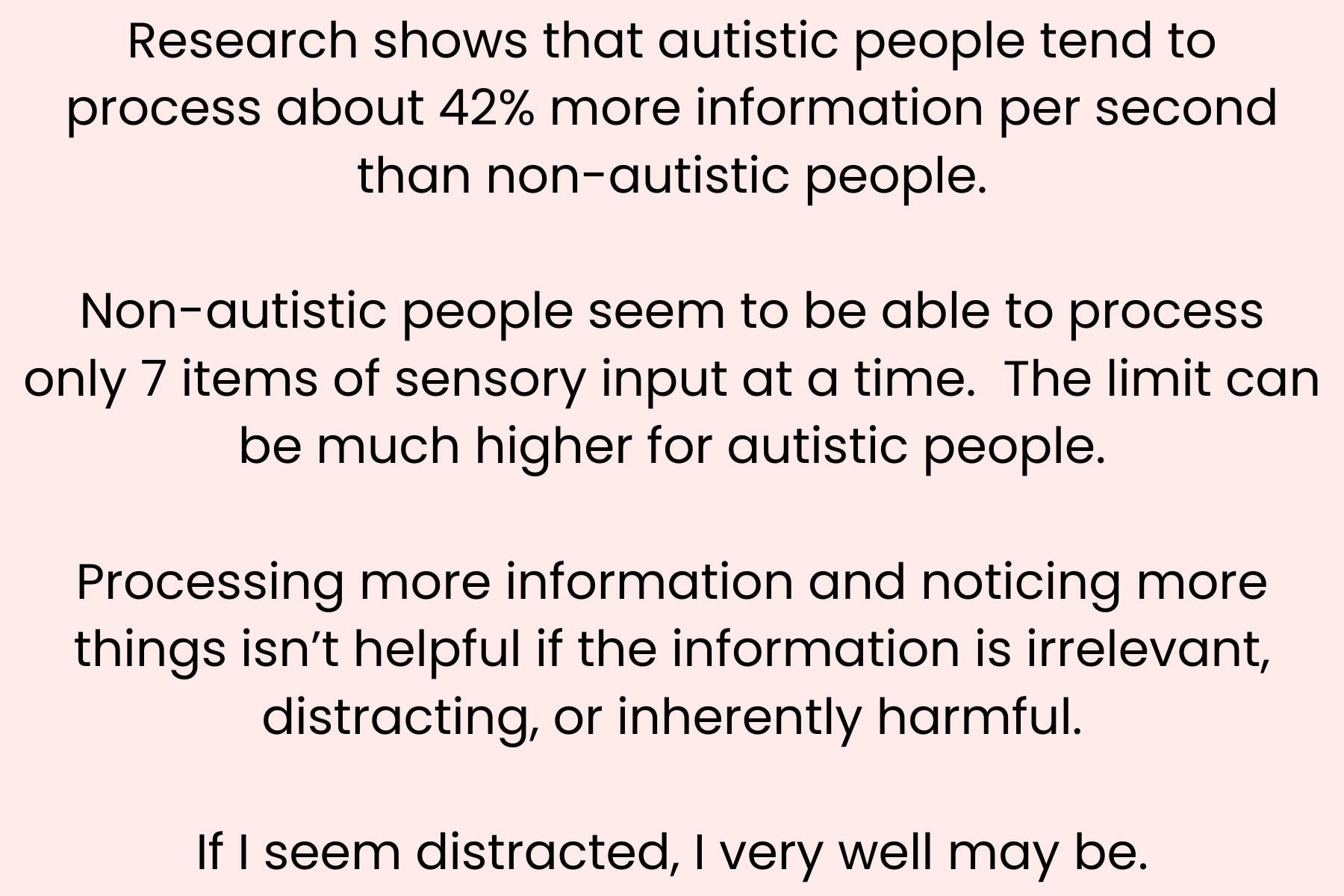Conversation 101: What You Need to Know to Support Autistic Colleagues
What it’s like navigating work as an autistic person, why conversations are exhausting, how support often misfires, and what real allyship looks like. If you’ve ever asked, “How can I help?”, this is what I wish I could say (and why it’s hard to say it).

Author’s note: I think this marks the first time that I admitted to being autistic online. I had made it pretty clear with my previous posts and some comments on other people’s posts, but I think this is the first time I actually put it in writing.
Today, someone asked me what she could do to make life (at work) easier for me in particular and other autistic people in general. Here are some of the things I should have said. And also some of why I couldn’t say them.
Understand that if you ask this kind of question to an autistic person, the conversation may not unfold in the way that you expect. I need time to answer a question. Any response you get in the moment will likely be superficial. And then come the follow-up emails.
If we’re having even a casual conversation in person, on a video call, or on the phone, my brain is running at a million miles an hour.
I’m worried about physical things:
- Am I making enough eye contact? Too much? When I do look away, where do I look? Have I looked at the same thing too many times? Should I look at something else? Am I blinking enough? Too much?
- How’s my facial expression? Body language? Posture?
- Am I facing the person I'm talking with? Is that appropriate in the current situation? Is there someone / something else I should be facing?
- Am I keeping my feet still? My hands? Am I doing that thing where my heel bounces up and down? Am I tapping out complicated mathematical patterns with my fingertips?
- Am I moving around in my chair? Is it too much? Should I move more? Do I seem robotic?
- Should I nod? Am I nodding too much?
- Should I make a hand gesture? Which one? How often? How big?
I’m worried about what I’m saying:
- Has the ADHD kicked in? Have I actually finished a sentence or do I keep starting new ones?
- Are the things that I’m saying “socially appropriate?” Relevant to the conversation?
- How's my tone of voice?
- Are the words even coming out in the right order?
- Have I said the same thing too many times?
- Does this person have any clue what I’m trying to say?
I’m worried about what you’re saying:
- Do I actually understand what you mean, or do I just think I understand? Is there some crucial subtext I’m not getting?
- Where is this conversation going? Are you going to want something from me at some point? Are you about to ask me something?
- Should I make some kind of sympathetic agreement noise while you are talking? Which one? How often? How big? How loud?
- Are you being serious? Sarcastic? Joking?
I’m worried about what’s going on inside my head.
In many ways, having a conversation with anyone is like trying to have a conversation in a foreign language. A foreign language that I studied for a couple of years in high school and haven't used since. You're talking, and I am desperately trying to translate what you are saying while coming up with the vocabulary for what I want to say in response.
With 90% of my mental capacity focused on the mechanics of having a conversation, that leaves only 10% to actually process the content of what is being said. If you ask me a question, all my brain is going to come up with is “404 error, page not found.”
I mentioned that if I'm spending 90% of my energy on the mechanics of having a conversation, that only leaves 10% to process the substance of the conversation. I can shift the balance. I can put more energy into the substance of the conversation, but that means cutting back on the mechanics. I'll stop making eye contact. I'll stop looking in your direction. I'll stop making agreement noises and gestures. I will worry less about how quickly I respond to what you say in favor of how well I respond. Which may lead to the dreaded "awkward silence."
The result of which is that you will think I'm uninterested. Or rude. Or bored. Or preoccupied. And you will end the conversation. Which isn't what I want. But it is an understandable reaction to how you perceive my behavior.
The amount of energy I have for social interaction is finite, and conversations can drain it rapidly. And once it’s gone, I’m done. I will find the shortest possible line between me and the end of the conversation, and I will follow it. And heaven help anyone between me and the exit. I can either run away from the conversation and let you think that I’m rude, or I can stay, risk a meltdown or a shutdown, and let you think I’m a freak. Not a great choice. If I say "I need to go," you need to let me go.
Before I go on, just a quick reminder that autism is complicated. Depending on which article you read, there may be as many as 800 genes associated with autism. Which means that – at least in theory – every person on the planet could have a completely different combination of these genes.
Everything that I’m saying is true. For me. It may or may not be true for other autistic people. It may or may not apply to other neurodivergent people.
Let the ranting resume!
Let’s say you know someone, and you’re pretty sure that person is autistic. And you want to support that person by finding out if there is anything you can do to make their life a little better. You can’t come in the front door with “Hey, you’re autistic...” The conversation will be over before it begins. For at least 2 reasons.
First, this person may not know that they are autistic. I’m 55 years old. I was formally identified as autistic within the past year, although I knew who I was long before that. But for most of my life I didn’t know. I thought I had social anxiety. I thought I had Tourette’s Syndrome. I thought a lot of things. Mostly I thought I was broken or defective because I couldn’t do all of the things that seemed easy for everybody else. If you had approached me 10 years ago and told me I was autistic, I would have thought you were crazy. And I would have been insulted. Because I believed the same pop-culture definition of “autistic” that is still dominant today. And I wasn’t that.
Second, if this person does know that they are autistic, they may not be ready to talk about it. They may not be ready to talk because there is a considerable stigma associated with the term “autism.” Hiding, or "masking," their autism may seem like a good survival strategy in the moment. They may not be ready to talk because they don’t feel that they know you well enough. They may not be ready to talk because it is the wrong time for a conversation.
For many autistic people, all spontaneous social interactions need to be approved in writing 8-10 business days in advance. OK. That’s a little bit of an exaggeration. But only a little. An unexpected conversation, no matter how trivial, can cause a huge surge of stress for an autistic person. But if your opening line is “Hey, you're autistic....” then I know that this isn’t going to be a trivial conversation.
The simple solution is to avoid the Big Conversation. Start with some small questions. “I will get that information to you. Would you prefer a call, email, text? What works best for you?” Now you’ve given me a non-confrontational, simple way to express my communication preference. If you ask enough of those questions, and give me what I need, then maybe we can have a Big Conversation at some point.
But I’ve been autistic my entire life. Discussing it generally doesn’t end well. The number of times I’ve been mocked, dismissed, taken advantage of, or worse far outweighs the number of times I’ve had a positive conversation about autism. So just because you want a Big Conversation doesn’t mean you’re going to get one. And if you can’t respect my boundaries, if you can’t let go of your need to talk when I make it clear that I don’t want to talk, I can guarantee that the Big Conversation is never going to happen. You’ve already told me everything I need to know about you.





